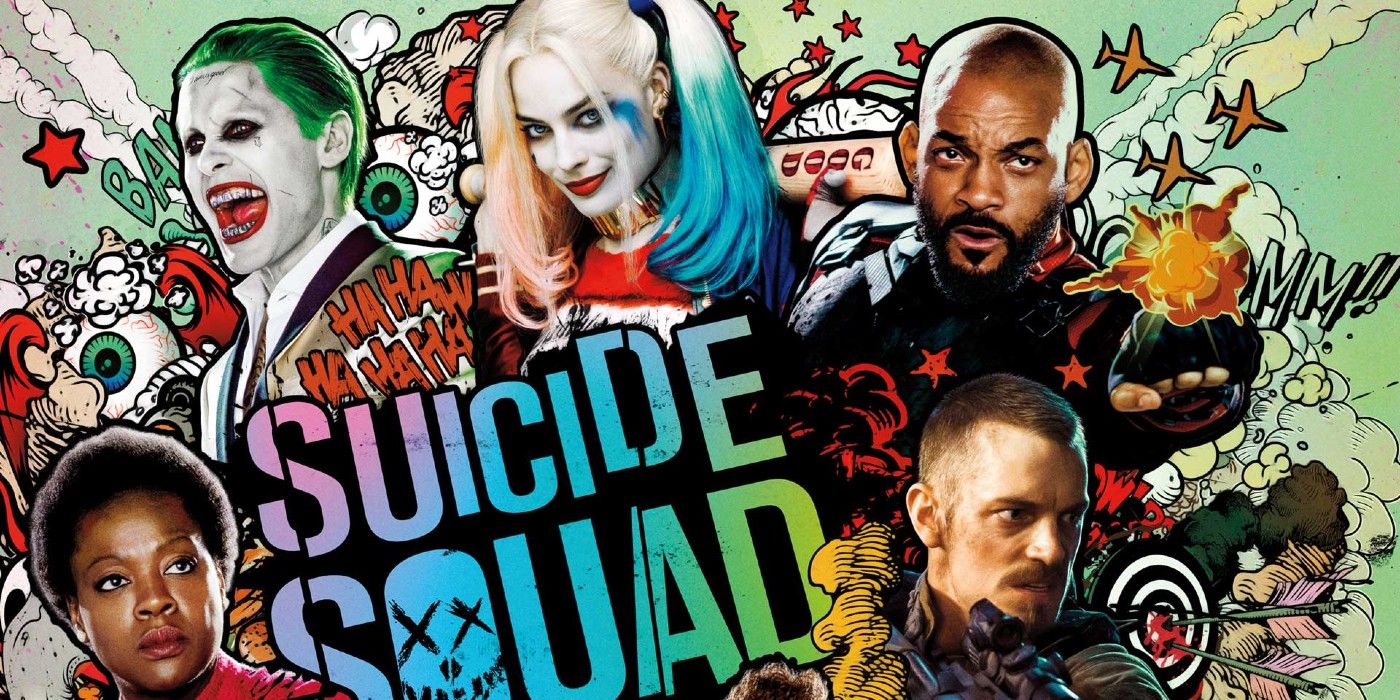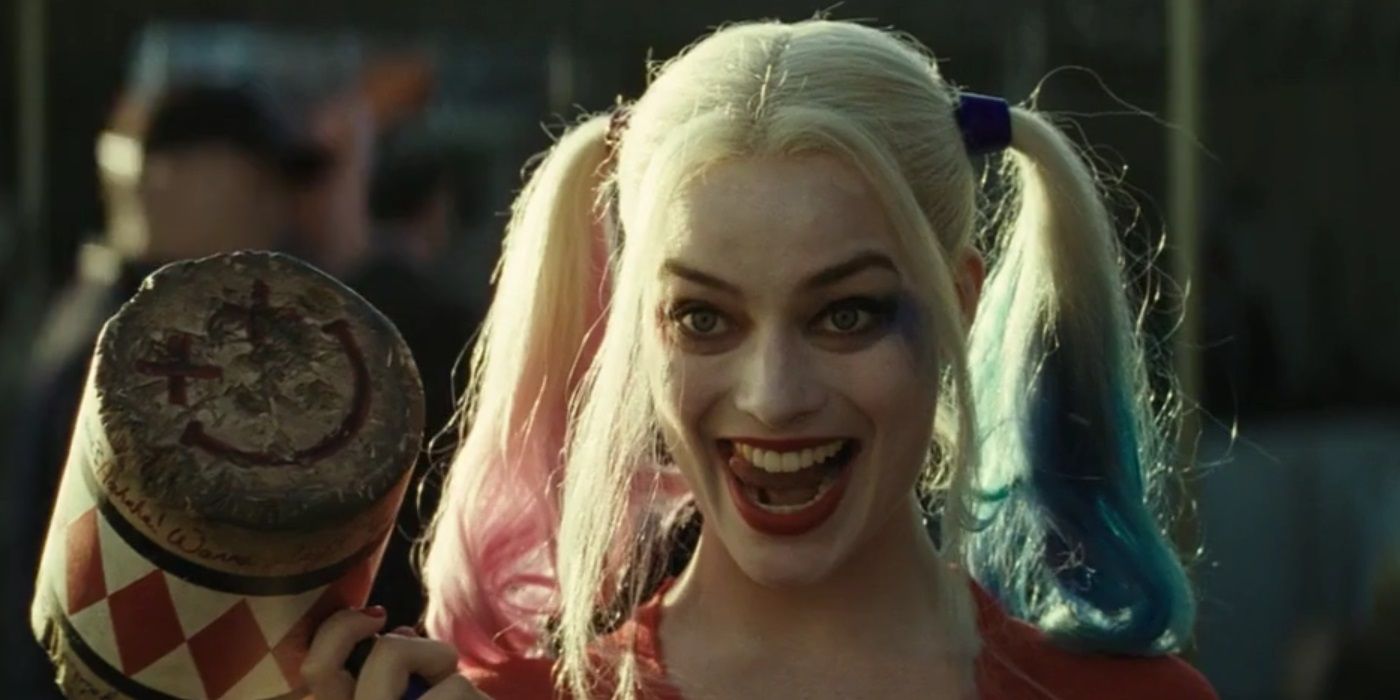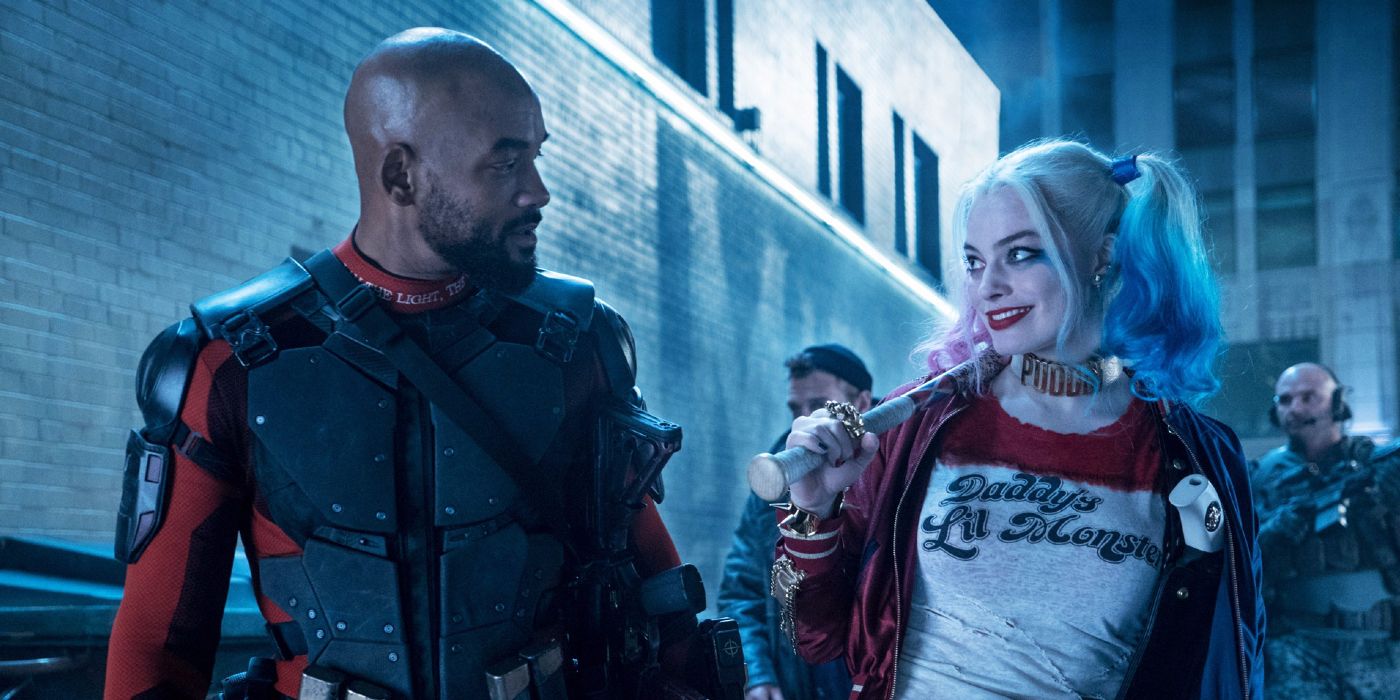
Five years ago, director David Ayer's Suicide Squad burst into theaters and broke box office records for an August release. The film had a mixed-to-negative reception but is a worthy entry in the DC Universe due to the intriguing characters who collaborate as bad guys trying to save the world.
While the Joker was heavily underused, the 2016 theatrical version of Suicide Squad was actually a decent film that brought together flawed villains who slowly found a way to work together and become heroes. Certain characters needed more screen time (like Killer Croc and Boomerang), but the majority of the squad, including Deadshot, Harley Quinn, and El Diablo, go through psychological breakdowns during their mission in order to discover themselves and find their purpose.
RELATED: The Suicide Squad's Margot Robbie Wants More Women In Action Movies
Deadshot is a skillful hitman who knows how to aim for his targets, but ends up getting thrown in prison, straining his relationship with his daughter. Harley Quinn is a psychiatrist who falls madly in love with the Joker, and they both become notorious criminals in Gotham. El Diablo is a former gang member who had a family, and has the ability to let out fire through his hands (which can be both a curse and a superpower). When these three bad guys are among many ordered by Amanda Waller and Col. Rick Flag to respond to a global threat in exchange for reduced prison time, the criminals each have their own crisis to think about, and don’t care for the mission at hand. That is, until their own lives are threatened, and they realize the world is truly at stake.

As the squad takes down one-dimensional zombie-like creatures and attempts to find the primary enemy and its source, Harley goes through a psychological breakdown as she remembers how she transformed from psychiatrist to criminal through her intimacy with the Joker. In a flashback moment, Joker asks Harley, “would you live for me?” before they both fall into a pool of chemicals. Harley’s sentimental moment and her memories are pivotal towards understanding her psyche and how her character is willing to take dangerous risks. Her problem, though, is that she feels lonely without Joker, meaning that she truly hasn’t found her own identity, causing her to have emotional feelings, which is also shown when she asks Deadshot, “have you ever been in love?”
Floyd Lawton/Deadshot is a man who also lives dangerously due to his history of taking down major high-profile targets. However, he also thinks about his daughter a lot, who he loves very much, and wants to go back home to her. El Diablo was also a family man with a wife and children, all of whom sadly die due to the house fire he accidentally caused due to his firepower and temperament, which is why he believes he’s a cursed man who has nothing to live for.
Captain Boomerang (whose past isn't really explored here) also has qualities that display his silly machismo and hyperactivity, such as his knack for stealing, constant drinking, starting fistfights, and his childish obsession with toy unicorns. Killer Croc is a character who doesn't say much, but has a physically imposing look of a creature who's been through hell, but accepts his image, telling Harley in the bar scene, "I'm beautiful." Katana (Rick Flag's bodyguard) is not a supervillain but a powerful combatant who is driven by vengeance (especially after her husband's death). She initially dislikes the squad, but becomes attached to them when they all learn the truth behind the mission, and that Rick Flag was initially dishonest with them about his relationship with Dr. June Moone/Enchantress, the primary villain and threat towards humanity.

The backstories behind most of these characters are rough and gritty, and they begin to understand each other more as they go through with the mission. While the story is predictable, the characters each have their own personalities that make the premise at least appealing because these are villains who have a conscience. They also reach a breaking point, which is displayed when all of them are together in a bar, talking about how they are outcasts and ugly people who have done very bad things, but believe that they still have something to fight for.
The final battle is also pivotal in displaying the characters’ mentalities when Enchantress manages to mess with each squad member’s mind by unleashing their innermost desires and fantasies. These include Deadshot killing Batman, Harley and Joker (without makeup) living a beautiful life with children, and Diablo's family is still alive, with his wife seducing him into making love to her. There’s also a powerful moment when Deadshot grabs Harley’s gun to shoot an explosive device in order to blow up Enchantress’ spell, but pauses when he envisions his daughter, who tells him not to pull the trigger if they intend to be together. Deadshot yells out in rage, knowing that this is his most important shot to save both his daughter and the world, and he takes it (as Harley’s gun barrel symbolically shifts from hate to love).
This film is far from perfect, and James Gunn’s The Suicide Squad may blow this one out of the water, especially due to his success with Marvel’s Guardians of the Galaxy series. Gunn’s version, based on the trailers, may bring the right balance of drama, humor, brutal violence, and mayhem for its characters. That being said, David Ayer’s 2016 version still works because of the villains, their personal stories, and their psychedelic face-off with Enchantress.

